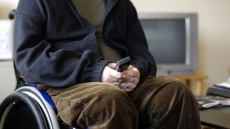Eating fruit before you go to bed cleans your teeth and all mouthwashes do the same job are some of the myths related to dental health, but experts rule them out as lack of knowledge.
TePe, the experts in oral hygeine, have acknowledged that people find it difficult to differentiate between facts and myths, reports femalefirst.co.uk.
According to a recent survey conducted by TePe, many of us struggle to know what is good practice when it comes to taking care of our teeth, with 20 percent of respondents questioned brushing only once a day and 45 percent having never heard of floss or interdental brushes.
This lack of knowledge can do more harm than good so here are few myths debunked by the brand's experts.
* Myth: Eating fruit before you go to bed cleans your teeth
Fact: While containing necessary nutrients, a lot of fruits contain sugary substances that are not good for your teeth before bed. Eating fruit before bed provides sugary and acidic conditions for plaque bacteria to thrive. Coupled with the reduction in the protective saliva flow that occurs naturally at night, eating fruit before bed puts teeth at risk of damage
* Myth: There is no harm in sharing toothbrushes
- Fact: It is always best to keep to your own toothbrush because your unique bacteria does remain on the brush and some bacteria simply should not be shared in this way.
* Myth: All mouthwashes do the same job
- Fact: Mouthwashes, like toothpaste, contain different ingredients that are included to achieve different results. Some of the ingredients are not suitable for all individuals. People with a dry mouth, who suffer with mouth ulcers or who have sensitivity should avoid mouthwashes that contain alcohol.
* Myth: Brushing your teeth harder than normal is a better way to keep them clean
- Fact: To maintain a healthy mouth, it is recommended that we brush for two minutes, twice a day with a soft to medium toothbrush, using a gentle circular brushing motion with fluoridated toothpaste and cleaning the spaces in between the teeth with floss or an interdental brush.





